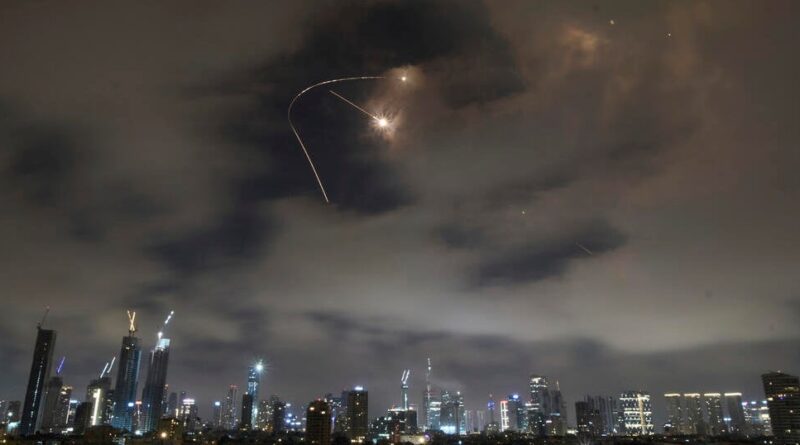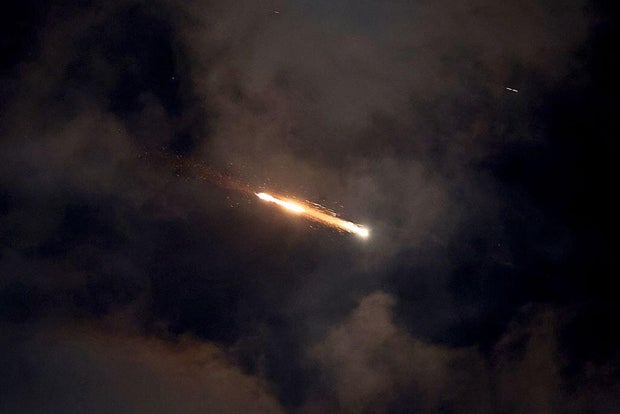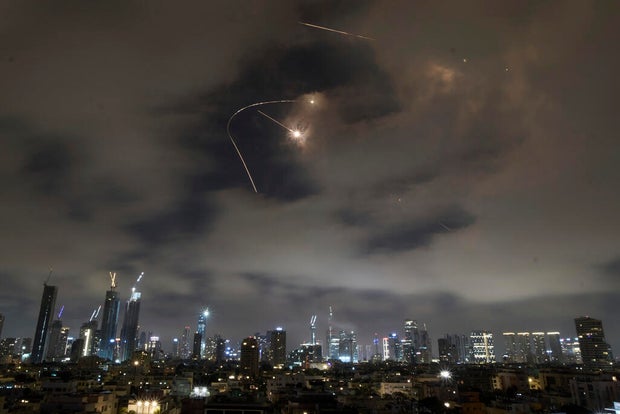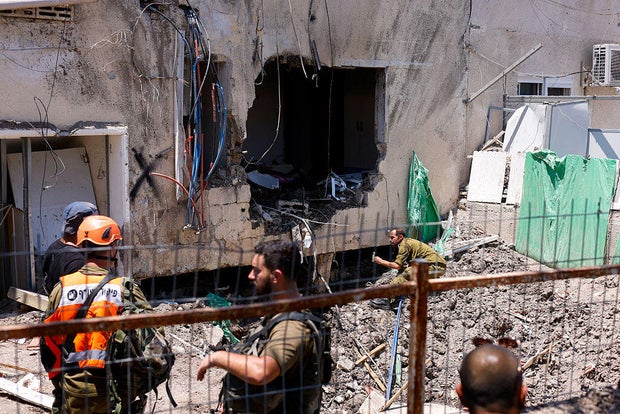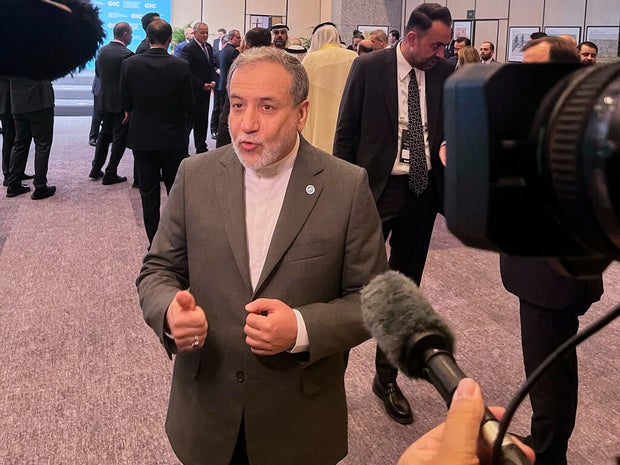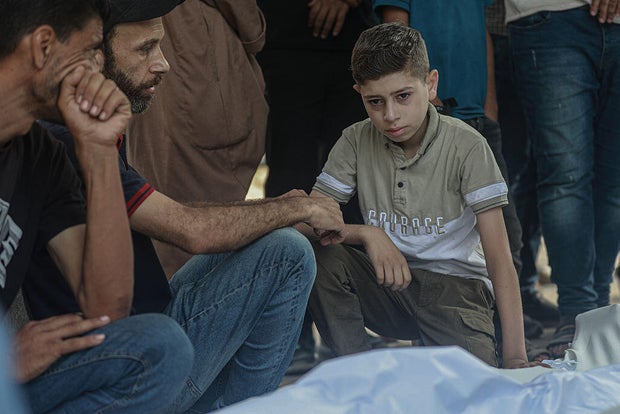Iran-Israel war enters second week with more strikes as warning against U.S. intervention issued
The second week of the Iran-Israel war began with additional strikes targeting an Iranian nuclear research facility as Iran’s foreign minister issued a warning against the United States joining the conflict.
Early Saturday, smoke could be seen rising from an area near a mountain in Isfahan, where a local official said Israel had attacked the nuclear research facility in two waves.
JACK GUEZ/AFP via Getty Images
The target was two centrifuge production sites, and the attacks came on top of strikes on other centrifuge production sites elsewhere in recent days, according to an Israeli military official speaking on condition of anonymity under army guidelines to brief reporters. It was the second attack on Isfahan, which was hit in the first 24 hours of the war as part of Israel’s goal to destroy the Iranian nuclear program.
Akbar Salehi, Isfahan province’s deputy governor for security affairs, confirmed the Israeli strikes had caused damage to the facility but said there had been no human casualties.
Leo Correa / AP
Israel’s defense minister said Saturday that the military had also killed three senior Iranian commanders in targeted attacks – including a commander of Iran’s paramilitary Revolutionary Guard who he said financed and armed Hamas in preparation for the Oct. 7, 2023, attack on Israel that sparked the 20-month-long war in Gaza.
Iran launched a new wave of drones and missiles at Israel but there were no immediate reports of significant damage, and the Israeli official called it a “small barrage” that was largely intercepted by Israel’s defenses.
JALAA MAREY/AFP via Getty Images
The official said part of the reason that Iran’s overnight attack had been relatively small was that the military had been targeting its launchers and estimates it has now taken out more than 50% of them.
“We’ve been able to take out a large amount of their launchers, creating a bottleneck — we’re making it harder for them to fire toward Israel,” he said. “Having said all that, I want to say the Iranian regime obviously still has capabilities.”
Iran warns against U.S. involvement in conflict
President Trump continues to consider whether the U.S. will militarily intervene in the Israel-Iran war, as he faces pressure from some world leaders to find a diplomatic solution. He said earlier this week that he will decide within two weeks if the U.S. will get involved in the conflict. The timeframe, some American and European officials say, is a “last shot” at diplomacy.
“I’m giving them a period of time,” Mr. Trump told reporters in Bedminster, N.J., on Friday. “We’re gonna see what that period of time is, but I would say two weeks would be the maximum.”
Iranian Foreign Minister Abbas Araghchi, who met with European officials in Geneva on Friday, said he was open to further dialogue. However, he said, Tehran had no interest in negotiating with the U.S. while Israel continued attacking.
Mehmet Guzel / AP
Speaking on the sidelines of a meeting of the Organization of Islamic Cooperation on Saturday, Araghchi said any military action by the U.S. “would be very unfortunate.”
“I think that it would be very, very dangerous for everyone,” he said.
The war between Israel and Iran erupted on June 13, with Israeli airstrikes targeting nuclear and military sites, top generals and nuclear scientists. At least 657 people, including 263 civilians, have been killed in Iran and more than 2,000 wounded, according to a Washington-based Iranian human rights group.
Iran has retaliated by firing more than 450 missiles and 1,000 drones at Israel, according to Israeli army estimates. Most have been shot down by Israel’s multitiered air defenses, but at least 24 people in Israel have been killed and hundreds wounded.
Israeli Prime Minister Benjamin Netanyahu has said Israel’s military operation in Iran would continue “for as long as it takes” to eliminate what he called the existential threat of Iran’s nuclear program and arsenal of ballistic missiles.
But Netanyahu’s goal could be out of reach without U.S. help. Barring a commando raid or even a nuclear strike, Iran’s underground Fordo uranium enrichment facility is considered to be out of reach to all but America’s “bunker-buster” bombs.
Israel continues fighting wars on different fronts
As the conflict with Iran escalates, Israel’s war against Hamas in Gaza continues to intensify.
Hospitals in Gaza City reported that overnight strikes killed at least 84 people and injured more than 120 others. The recent strikes have targeted mobile phone charging points and residential homes, CBS News’ team in Gaza reported.
Abdalhkem Abu Riash/Anadolu via Getty Images
The Hamas-run Gaza Ministry of Health said Saturday that more than 200 bodies were brought to hospitals across Gaza in the past 48 hours and more than 1,000 people were wounded.
An Israeli military official told CBS News that Israel is getting used to fighting in multiple arenas and the war in Gaza is still ongoing.
contributed to this report.

